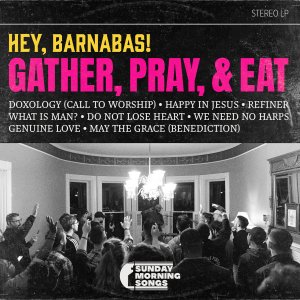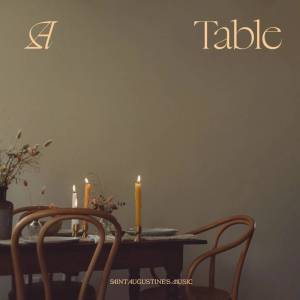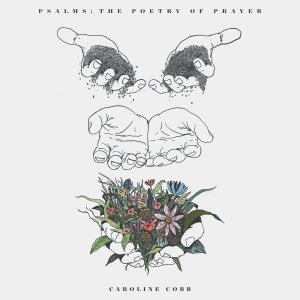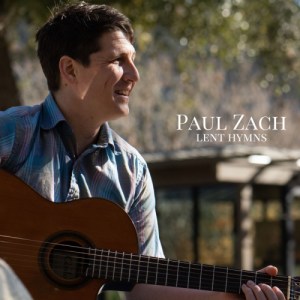While big-name megachurch outlets produce the bulk of music sung on Sunday mornings, independent musicians across churches, denominations, and musical styles are writing their own songs for their community to sing together—and maybe ours one day too.
Four recent releases by independent artists—Gather, Pray, and Eat by Hey Barnabas! and Sunday Morning Songs; A Table by Saint Augustine’s Music; Psalms: The Poetry of Prayer by Caroline Cobb; and Lent Hymns by Paul Zach—offer new music to accompany and facilitate worshipful celebration, intimacy, mourning, thanksgiving, and supplication.
These independent worship artists have a foot in both worlds: They write for their local congregations but also hope that their songs reach worshipers they’ll never meet.
“We want to create music that’s unique to our community, but we sing to the world,” said Chloe Williams, a vocalist and songwriter in Saint Augustine’s Music. “We’re not trying to replicate anything, we’re not trying to be the next best thing; we’re just trying to be faithful.”
Independent artists add diversity and depth to the repertoire of music available to the church, providing space for collaboration and contributions from a broader community of songwriters.
“We want to create a table, not another platform,” said Eric McAllister, creative director of the worship collective Sunday Morning Songs.
Gather, Pray, and Eat

Eric McAllister is creative director of Sunday Mornings Songs and director of music and liturgy at High Pointe Baptist Church in Austin. He describes congregational singing as a joyful feast with family and friends.
“Singing together and eating together, even as someone burns the potatoes or puts too much dressing on the salad, or a couple of us are out of tune—once we move past these discomforts, there is a sweet intimacy that can grow, if we let it.”
Gather, Pray, and Eat is the result of a crowd-funded convening of over 50 musicians—forming the massive studio band Hey Barnabas!—to record an album of contemporary gospel worship originals.
McAllister has a vision for worship that is informed by Scripture and grounded in the local. His internship experience with Sovereign Grace Music from 2010 to 2011 instilled a love for modern hymnody with theologically dense text and inspired him to create music that grows out of that genre but reflects the voices of his community.
“I write with an open Bible and an open membership directory,” McAllister said. “We’re hoping to grow classic hymnody and move that in a direction that is more diverse in how it sounds, the language, the idioms.”
The vocal lines on tracks like “Happy in Jesus” are tuneful and memorable, and the whole album is full of rich poetry and stirring instrumental arrangements.
The first single from the album, “What is Man” (written by Dorothy Scott), rivals any classic hymn in the scope and depth of its text. Adapted from Job, the lyrics describe the creativity and power of God, punctuated by the refrain:
As we think of his deeds, all the work of his hands, in humility we ask, “What is man?”
“What is Man” is powerful, prayerful, and likely a little intimidating for leaders and musicians whose churches don’t usually have a full choir and band. But McAllister intended the music on Gather, Pray, and Eat to be adaptable and singable for a church of any size.
“We test-ran each song around a table, a capella, and at worship nights in living rooms,” McAllister said (he doesn’t have a musical ensemble of 50 on a usual Sunday morning either).
McAllister has made the chord and number charts freely available via the Sunday Morning Songs Instagram page.
A Table

Saint Augustine’s Music is the music ministry of Saint Augustine’s Church, an Anglican congregation of about 400 people in Auckland, New Zealand.
They released their first EP, A Table, track by track, with the fourth and final release on June 30. The first three tracks, “Here and Now,” “As I Am Still,” and “To Be Like You” are available on streaming services.
Worship leaders and aspiring songwriters trying to build a culture of creativity in their churches can look to Saint Augustine’s Music as a model. The group collaborates to write music that fits the capacities and gifts in their congregation, crafting songs that suit small, intimate spaces and large auditoriums.
“We are just replicating what we do on Sunday morning, to the best of our abilities, which is the best offering,” said vocalist and worship leader Chloe Williams.
The song “As I Am Still” is prayerful and simple, consisting of a verse, pre-chorus, and chorus that build and diminish, never reaching an ultimate, triumphant moment but instead reflecting the natural ups and downs one might experience in a time of expectant prayer.
The lyrics “silence the deafening noise / quiet the storm with your voice / I will wait for you to speak” invite worshipers in whatever season or state of mind to listen and wait, whether for comfort, guidance, or peace.
Chord charts for the songs on A Table are available on Saint Augustine’s Music’s Instagram page.
Psalms: The Poetry of Prayer

Caroline Cobb in Dallas describes her songwriting as “storytelling work.” Her newest album, a collection of psalm settings, took shape as Cobb found comfort in their poetry during the pandemic and after the death of her father in 2021.
“It was part songwriting, part personal devotion,” Cobb said, describing her process. “When you work your way through the Psalms day after day, it’s like [John] Calvin said, ‘an anatomy of the soul.’”
Much like the Book of Psalms, Cobb’s collection of settings reflects the emotional disorientation of singing a song of uncontainable joy in one moment and crying out a prayer of frustration in the next. But for Cobb, the unifying story of Scripture is the antidote to that emotional whiplash.
“I wanted to find psalms that were full of joy and thanksgiving and lament. The light is so much more beautiful for having allowed yourself the ache of the dark.”
There is heartache and darkness in Psalms: The Poetry of Prayer. The despairing but soulful verses in the setting of Psalm 102, “Don’t Hide Your Face,” voice frustration and overwhelm, giving way to the acknowledgment of God on the throne.
The setting of Psalm 92 is the polar opposite. “Good to Give Thanks” is cheerful and infectious, employing horns and a danceable groove. Listening and singing along, one can’t help but realize how seldom we embrace playful, uninhibited joy in our worship.
“A lot of people ask if it’s a kid song,” Cobb said, laughing. “We just had a ton of fun not taking ourselves too seriously.”
The song is a collaboration with artist Wendell Kimbrough, who cowrote and recorded it for the album.
Cobb wrote some of the psalm settings with congregational singing in mind, like “Shepherd, Walk Beside Me” (Psalm 23) and “I Love Your Word” (Psalm 119). Others, she intended to be devotional and meditative. But Cobb’s focus on storytelling undergirds the whole album.
“The hope for it is that people could rehearse and remember and kind of respond to God's big story, whatever they're doing in a day.”
Chord charts and lead sheets for the music on the album are available on Cobb’s website.
Lent Hymns

“There are plenty of songs for Easter Sunday, plenty of victorious songs out there,” said Paul Zach, a songwriter and worship leader in Charlottesville, who also writes and records with The Porter’s Gate.
Zach’s Lenten album is a collection of originals and mainstays unified by the mourning, waiting, and lament that accompany the season.
“I hope the songs I’m singing are an honest reflection of the anger, the joy, the sorrow, and everything in between,” Zach said.
There is a relative abundance of music for Easter Sunday and a limited selection for Lent. A search of songs sorted by theme on the charts of Christian Copyright and Licensing International (CCLI) finds 2,229 tagged for Easter Sunday and only 220 for Lent (36 for “Weeping”).
Although the season of Lent was months ago, the songs on Lent Hymns offer worshipers a musical repertoire that isn’t necessarily tied to one season.
Songs like “From the Dust” humbly voice acknowledgement of human fragility. The lyrics are starkly honest about the human condition and grounded in the hope found in an eternal God:
From the dust we came,
to the dust we shall return
God everlasting,
age unto age the same,
we are a moment,
then like a breath we fade.
Even though Zach created the album for Lent, he describes the collection not primarily as sad and mournful, but as gentle and honest.
“I want this to be a gentle companion,” Zach said. “I hope we can sing songs that show the kindness of God, that we are under the tender mercy of God.”
Chord charts for the music on Lent Hymns are available on Zach’s website.















